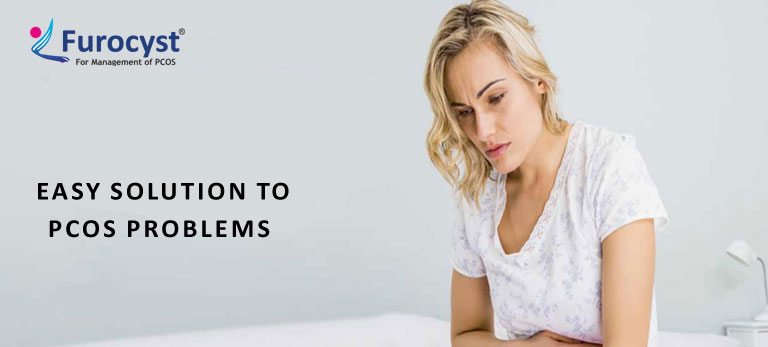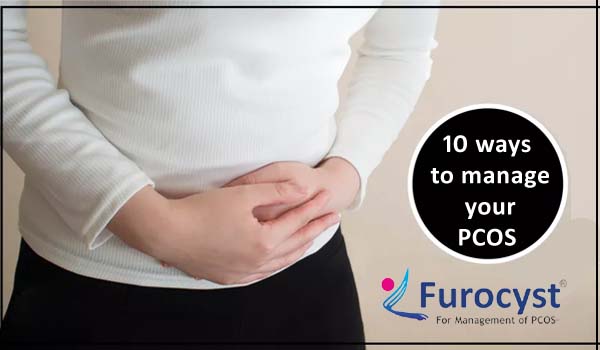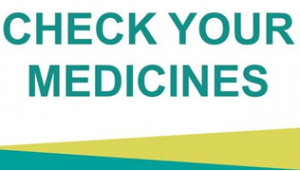Furocyst poster presentation ” TO STUDY THE EFFICACY AND SAFETY OF FUROSTANOLIC SAPONINS (FUROCYST) IN PCOS” at RIOCENTRO, at Av. Salvador Allende, 6555 on 14 to 19 October



Mumbai is the biggest city in India and is the city where a lot of women are suffering from PCOS.
Women with PCOS are frustrated.
They want answers which they deserve, but aren’t getting any.
Most of all, women with PCOS need help and support, which the PCOS Ayurvedic Treatment in Mumbai will provide.
Most of the women around the world are not aware about, what PCOS is? And how to manage it, and its effects on the female body.
Polycystic ovary syndrome is considered one of the most common endocrine dysfunctions in women of reproductive age causing menstrual and fertility issues, as well as metabolic, cardiovascular and reproductive risks. And if not addressed with food, nutrient and lifestyle modifications, the associated symptoms carry on well into menopause and can become life-threatening.
Hormonal imbalance is a common endocrine system dysfunction in women of adolescence age, reproductive age,or menopausal age. According to doctors ,contraceptive pills and hormone therapy are the only solution to treat this disorder but actually there is no cure for this disease. But there are still other ways to manage it and reduce it so you can live your life happily. So many new innovations are there in the market.We should at least give them a try, to have a chance to fight it.
A hormone called progesterone gets really low when a women is suffering from PCOS. Progesterone is a hormone created by the ovaries during ovulation. Progesterone plays a vital role in pregnancy and regulating the menstrual cycle of a women. If your progesterone levels drop, then it is called progesterone dip, which results in miscarriages during early pregnancy and premature birth during late pregnancy. High levels during early pregnancy can result in ovarian cancer or cysts in the ovaries.
A common misconception is that you need to take hormones to treat a hormonal imbalances. A hormone cannot treat a hormonal imbalance, even if the hormone is deficient. This is because hormones are only messengers and the real imbalance exists at a higher level. There are other types of allopathic medicines which are prescribed by doctors, but have side effects.
A collaboration between Indian and American scientists was conducted to determine the effectiveness of fenugreek seed extract (patented as Furocyst) on the reduction of ovarian volume and the number of ovarian cysts.
The study found that 46% of study subjects showed reduction in cyst size,
while 36% of subjects showed complete dissolution of cyst. Additionally, 71% of subjects reported the return of regular menstrual cycle on completion of the treatment, and 12% of subjects subsequently became pregnant. Overall, 94% of patients benefited from the regime.
Furocyst is a PCOS Ayurvedic Treatment in Mumbai, which is an all natural scientifically formulated supplement that supports your body by delivering the high-quality nutrients you need to defeat PCOS symptoms and repair PCOS damage.
It disrupts hormones that cause unwanted hair growth and acne, it also support hormones that enhance menstrual regularity
It gets to the root cause of your PCOS symptoms by improving insulin sensitivity
Enjoy more energy for your new active lifestyle
Traditional herbs and science together can make a substantial change in the medical world.
“All that man needs for health and healing has been provided by God in nature, the challenge of science is to find it.”
Herbs work because their healing properties can be readily absorbed and used by our bodies as foods as well as specifics for disease when used in the proper way
It’s not easy to give up, and walk away from PCOS.

PCOS or Polycystic Ovarian Syndrome is a female problem caused because of imbalance in the sex hormone levels. This further causes prolonged delay in periods thereby making it difficult for women in becoming pregnant. Apart from causing fertility issues, PCOS is supposedly linked to causing long-term health risks in females. If left untreated for a prolonged period, it can cause diabetes and heart problems.

This condition is primarily caused when an imbalance occurs in the female hormones like Estrogen, which triggers ovulation. Females detected with this syndrome have a higher level of androgen (male hormone) in their system, which restricts the process of ovulation to happen smoothly. Thereby small and multiple cysts get formed in the ovaries, making it impossible to conceive.

Increased levels of androgen triggerbalding, weight gain, hirsutism (excess of body and facial hair), acne and delayed periods. As per reports 1 in every 15 women are diagnosed with this condition, and the cases are becoming more common in present times. Other symptoms include an increase in blood insulin levels triggering diabetes.

It yet remains to decipher what are the actual causes of this condition and where does its root cause lie. Researchers are trying to decode the points which cause the emergence of multiple cysts on the ovaries of women. However, certain conditions, which are supposed to be the related to this condition, are enhanced levels of androgen.
As noted through research, a rise in the level of male hormones which is androgen is primarily linked with the disorder. This furthermore leads to excessive imbalance thus leading to reproductive problems, lipid abnormalities and also obesity. Women diagnosed with the ailment often face issues of hypertension, excess flab gain, heart risk, and diabetes.

First and foremost, it is always better getting oneself checked in case of witnessing the above symptoms. If you find your periods irregular and if it is prolonged for more than 2 to 3 months even though you aren’t pregnant then it is recommended consulting your Specialist for PCOD. Though there is no complete remedy detected for the condition, some of the solutions for the issues are as follows:

Weight gain is a paramount issue faced by women diagnosed with PCOD. A healthy diet aids in modifying the state and lessening its effect. Having lentils, chickpeas, soybeans, linseeds and much more aid in balancing the hormones once again. These are rich in phytoestrogens, and normalize the level of Estrogen.
In addition, adding enough amount of fatty acids for managing blood sugar is deemed useful. Thus, the inclusion of fish, nuts, and seeds assist in the proper absorption of sugar in the bloodstream. Intake of fibre rich food aids in removing out the excess of toxins from the systems thereby lessening the issues of weight and triggering weight loss.

Reducing obesity doesn’t solely depend on managing an eating regime. Only a proper combination of diet and physical exercise will help in losing flab in a healthy manner. As the cases of PCOD is on a verge, more and more remedies are becoming common. Supplements like Furocyst assist in the process of losing excess of fats.
As per reports, intake of such supplements aids in bringing about positive results. They are formed by separating the active ingredients produced through plants without affecting the chemical composition a
nd properties of the product. Thus, a regular intake of this product leads to maintain the body mass and thereby reduce the effect of PCOS.

The easiest way out as well as a solution of Polycystic Ovarian Disorder is indulging in regular exercise. Exercise helps in increasing the metabolism rate of the body which thereon increases absorption of blood sugar and burns fats. Increased metabolism decreases the level of fats in the body, raises the energy thereby normalizing the imbalance of hormones created in the body.

In addition, keeping a tab on diet through the intake of proper and healthy food curbing certain unwanted products and junk will further aid in reducing its effect. This includes complete avoidance of food products high in sugar which can aggravate insulin resistance in blood. Avoiding trans-fats, processed food comprising of hydrogenated fats as well as drinks like coffee and alcohol will aid in balancing chemicals necessary for ovulation.
PCOD is not a perennial problem which is devoid of a solution. Following a proper diet along with exercise will not only help in reducing its effect but also throw light in solving fertility issues.
http://www.dailymail.co.uk/health/article-4844450/Women-PCOS-4-times-likely-diabetes.html
https://www.healthline.com/health/diabetes/are-pcos-and-diabetes-connected#3
https://thehealthorange.com/stay-nourished/cure/pcos-increases-risk-diabetes-what-you-can-do-minimize-it/s
https://www.endocrine.org/news-room/current-press-releases/researchers-reveal-link-between-pcos-type-2-diabetes
https://www.medicalnewstoday.com/articles/319219.php
https://www.diabetes.co.uk/conditions/polycystic-ovary-syndrome.html
Click here

Introduction
It wouldn’t be very clever of you to ignore PCOS. Polycystic ovary syndrome is common in the age group of 18-44. To the surprise, most women don’t know of their suffering from this disease.
PCOS is an endocrine dysfunction common in women. Affecting hormones, this disease enlarges the ovary with the tiny non-malignant cysts. It increases the androgens level, which does affect negatively on female bodies.
Things to look out for in polycystic ovary syndrome
PCOS shows off with certain syndromes which are;
These are some of the usual symptoms that this disorder shows off. But the damage can be more resulting in cardiovascular disease and endometrial cancer. It is better not to ignore any of these syndromes.
Curing is possible through natural means. With a few rules and prevention, you can get rid of this illness. So let’s discuss some of the remedies that can help in skipping this sickness from your body.
Remedies to cure PCOS naturally

Apple Cider Vinegar is helpful for lowering the insulin production. With lesser insulin, you can easily get rid of androgen level, which is the main cause of this sickness.
You don’t have to search the Internet for any recipe. All you can do is mix two tablespoons of this in a glass of water. And you can have it every time you have a meal. This will help in stabilizing your blood sugar.

If you want to hit the root, then flaxseed can prove to be beneficial. It attacks the infection from the root and can cure the patient permanently.
This food contains lignin in a high amount, which ties up with blood’s testosterone, promoting its excretion. Thus it helps in lowering the side effects of the imbalance of hormones.
Besides its nutritional goodness, it tastes good with applesauce and cereal. You can even use it for baked foods and smoothies. Take two tablespoons every day to ensure a better living.

Most of us are not very fond of this vegetable. But at the same time, it is hard to ignore its benefits. Curing many diseases, it works in solving this usual issue in the women.
It reduces the amount of insulin production. This gourd works in holding back the uptake of glucose. Thus, it suppresses the enzymes responsible for the production of glucose. It does support the pancreas function in the secretion of insulin.
With its sour flavor, it tastes well when cooked with other vegetables. But if you seriously want to get rid of the sour taste, then the juice of tamarind can be useful. Certainly, it will taste much better.

If you suffer from menstrual issues, cinnamon can be of great help. Women suffer a lot at the time of their periods. Commonly, vomiting and nausea with pains in body and stomach are problems of this time. Also few experience heavy bleeding.
A pinch of cinnamon sounds effective in dealing with all these issues. You can certainly use it in your soup or say in your tea or even on your cereal. This not only renders a pleasant flavor to the food but also helps in the curbing of menstrual-related disorders.
A well-known spice in cooking can help you in treating your disorder. Fenugreek is helpful in putting a check on your irregular period problems. You will definitely love the nutty and sweet flavor of this spice.
It is either used in the whole form or in ground form. But you can be sure of getting a great savor whenever you add a pinch in your dish. So use it and see what benefits it brings to your body.
If you don’t find any fondness for fenugreek then you can use Furocyst. It is certainly a revolution in the medical industry that helps in regulating and managing this syndrome. Apart from reducing the size of the ovary, it reduces the size of the cyst and has been proven clinically safe and effective in managing PCOS.

There is nothing like the advantage of leading a healthy life. It remains in check if you follow a healthy diet with few exercises. Put a check on your obesity and follow a diet plan. Stop having processed food instead have fresh vegetables that count in benefiting your health.
Conclusion
You can try the above products or can skip everything for Furocyst. It completely depends on your choice but we recommend the medical innovation to be the best and safest.

PCOS has become common in women. However, many women are still unaware of this condition. The full form of PCOS is Polycystic Ovary Syndrome. 1 out of every 10 women are known to suffer from such disorder. It is likely to develop in the teenage years. Below are the 10 ways to manage your PCOS:
The symptoms vary depending on the age of a female. If the person is in her teen days then the signs are pimples, acne, thick facial hair and weight gain. On the other hand, it can be the reason behind a woman’s incapability to conceive. It can be managed if treated properly. Furocyst is one such effective and clinically proven solution. Besides that, other 10 ways to manage your PCOS are as follows:
Recognising the symptoms that your body is exhibiting
Start understanding the indication that your body is trying to give you. Once you get familiar with the signs you know the next step. Understanding will help you to proceed with the treatment accordingly.
Checking your insulin levels
Polycystic disorder is one of the primary reasons behind abnormality in insulin processing and vice versa. It is quiet confusing because your body will be over reactive to the carbohydrates and discharge excess of the same. The ovary in turn responds to it with the secretion of additional testosterone. Thus, you can reduce the chances of your ovary being polycystic by keeping a check on your blood glucose level.
Exercising on daily basis will keep diseases at bay. It is also effective to control PCOS. Committing at least 30 minutes of time from the entire day for exercise will help you to a large extent in keeping a check on the indicators.
Change your eating habit
Many studies and researches have concluded the fact that change in lifestyle and dietary habits are the major grounds to treat the affected women. Ladies who are more susceptible to frequent alteration in lifestyle are very likely to develop the disorder.
Being familiar with every detail
Changing the diet or lifestyle is indeed challenging. And if you are not aware of the reason behind such changes then it is more difficult. Thus, you must be familiar with all the negative consequences of the syndrome so that restricting yourself will not make you regret in any way.
Sketch a Schedule
Preparing a proper diet chart is crucial regardless of snack chart, meal chart, or craving chart. A proper planning will not let you ditch the regular exercises and making unhealthy choices of foodstuffs. The restriction is tougher other than proper routine.
Getting the team involved
A woman suffering from PCOS cannot take all the control measurements as a single person. She needs the support of her friends, close ones, family, relatives, and the doctor treating her. You should create your own team of supporters who will motivate, advice, and give tough yet soft love at the times of your need.
Swimming
Swimming is the best natural way to get rid of the disease. It is a form of effective exercise which not only helps you to shed the unwanted kilos but also manage Polycystic Ovary Syndrome.
Celebrating the victory
Doing the above-mentioned steps will assist you in overcoming the hurdle. Controlling eating style, exercising, etc is difficult to follow in a routine manner but the impact which they leave is admirable. It will help you to heal naturally with just support, love and care.
These are the 10 ways to manage your PCOS. If these advices are not making any noteworthy changes in your condition then you are recommended to have Furocyst. Composed of 100% natural ingredients’ extract, it has no known side effects. This supplement reduces the size of the ovary significantly and dissolves the cyst completely. Problems with menstrual cycle will also get dissolved.
Consumption of this supplement will not at all interrupt with your liver or kidney function. Instead, it cuts down the hypercholesterolemia and glucose processing. It is a promising natural dietary supplements perfect for the cysts. You are recommended to take two capsules a day.
For more,

ARE YOU SUFFERING FROM BOTH PCOS & DRY EYE DISEASE?
Dry Eye Syndrome is an addition to a long list of complications associated with PCOS. PCOS & Dry Eye Disease is a common condition, affecting an estimated 9 million women. Those with dry eyes know that this condition can affect the quality of life because dry eyes can impact work and every aspect of life. If not treated and managed, people with dry eyes can develop repeated eye infections that can eventually lead to the damage of an important part of eye i.e. cornea and cause vision problems.






PCOS & Dry Eye Disease: Eye health of women with PCOS has been compared with the non-PCOS women in many studies and it has been confirmed that women with PCOS have drier eyes than women without the syndrome. The reason is because of an imbalance of hormones, which can affect eye surface and the function of tear glands (responsible for making eyes wet). It has been observed that the structure of eye is under hormonal control. High androgens (testosterones – male hormone) in women affect the lipid layers of tear glands making eyes dry. This takes the patient to a higher risk of an eye infection, because the fluids in the eye can’t carry the debris away to protect your eye.
PCOS is also associated with inflammation which can cause inflammation in the eyes as well. If the eyes remain dry for a long period of time then inflammation is experienced by the patient. The immune response releases inflammatory substances that make the eyes become red, itchy and swollen.

The best long-term way to do regain a healthy hormonal balance is to improve diet, get more exercise and reduce chronic stress.
Studies have shown that women with polycystic ovary syndrome consume a diet with a higher glycemic index than other women do. They also eat less legumes and vegetables. This poorer quality diet contributes to all kinds of health problems.
Increase the consumption of either fenugreek or fenugreek-based supplements such as Furocyst™ which is clinically proven to effectively and safely manage PCOS.

Carefully wash your eyelids with a mild soap (baby shampoo is frequently recommended)
Use artificial tears (rewetting drops). This remedy provides great relief. 
Limit contact lens use as much as possible. Contact lenses can soak up the fluid in your eye and they also collect proteins on the surface, which further irritates the eyes. Keep lenses clean, and try not to wear them all the time. If you need to use eye drops, check the label, as not all drops are made to be used with contacts. 
Get more sleep. This will provide your eyes the rest they need and will also help reduce the stress that contributes to imbalance in your hormones. Your body repairs its cells and detoxifies while you sleep, which in turn also helps decrease inflammation. 
Don’t forget to blink! Try to blink every five seconds, especially when staring at your computer screen or TV. Take breaks from TV and computer screens.
Avoid sitting in direct contact with heat vents, air conditioners or fans
Increase intake of omega-3 fats. Omega-3 fats which are found in fish, walnuts, egg yolk and avocado can reduce inflammation. Fish and fish oil is absorbed best. Many of our patients report more comfort and less dryness in a few weeks of taking fish oil. 
• Check your medications: If you are on prescription drugs, talk to your healthcare provider to see if anything might be causing your dry eyes. There could be alternate medications. 
• Avoid pollution and irritants: Smoke aggravates dry eyes. Avoid rubbing your eyes because that can disturb the tear film, remove tears, and transfer irritants to your eye. If you wear makeup it is suggested that you purchase hypoallergenic make-up.
If you feel you have dry eye, see an eye doctor for treatment and to avoid further eye damage!
References
http://www.pcosnutrition.com/dryeye/
https://www.ncbi.nlm.nih.gov/pubmed/17362862
http://www.ovarian-cysts-pcos.com/pcos-dry-eye.html
https://www.womentowomen.com/menopause-perimenopause/dry-eyes-and-hormone-imbalance/
For more info visit https://furocyst.com or
If you’re experiencing persistent weight gain and have skipped a period or two and are not pregnant, don’t be so quick to blame stress. In fact, experts believe that more than half of women with polycystic ovary syndrome (PCOS) don’t even realize they have it. Find Out if You Have PCOS with these 7 Signs. PCOS, a hormonal disorder that often flies under the radar, is caused by a hormonal imbalance and marked by small cysts on the ovaries. 5 to 10 percent of women between the ages 20 to 40 are affected by the condition but less than half are actually diagnosed according to the PCOS Foundation.
To hopefully bring clarity to millions of women potentially affected by this disorder, we have compiled a list of the most common symptoms of PCOS that are often subtle and difficult to detect. If you’re experiencing any of these symptoms, get an evaluation from your gynaecologist and explore our other posts discussing lifestyle tips for PCOS and how you can naturally treat and even cure this disorder. PCOS with these 7 Signs:
1. Irregular Menstrual Cycle
Skipping periods and having an unpredictable menstrual cycle are hallmarks of PCOS. Dr. Maryam Siddiqui, MD, assistant professor of obstetrics-gynaecology at the University of Chicago Medicine says:
“Our menstrual cycle is like a vital sign. It tells us if our metabolism is in a good state; if you’re too thin, overweight, or stressed, that can throw your cycles off. Having irregular periods or more likely, skipping multiple periods could be a sign of hormonal imbalance like PCOS.”
Menstrual irregularities should be the first red flag and prompt you to visit a gynaecologist.
2. Abnormal Hair Growth
Hirsutism, or excessive hair growth on women on parts of the body where hair does not normally grow, is a common symptom of PCOS. The ovaries are producing excessive amounts of androgens, a hormone that can stimulate hair growth. Hair could grow on the face, chest, inner thighs and stomach, places where women do not normally see excessive hair growth.
3. Breaking out Like a Teenager
Elevated androgen levels can also cause breakouts. The hormone boosts sebum production and the combination of excess oil and old skin tissue clogs pores. Bacteria flourish on sebum triggering inflammation.
4. A Dark “ring” around Your Neck
That strange discoloration on your neck, also called acanthosis nigricans, is not from that cheap necklace you bought at a market. PCOS can cause stubborn dark patches of skin on the back of the neck that don’t wash off. This change in pigmentation can also appear under your arms and around the vulva.
5. Sudden and Persistent Weight Gain

Inexplicable weight gain, particularly around the abdomen, is a symptom of PCOS. More research is needed to understand why weight gain is often a sign of PCOS however, Dr. Siddiqui explains:
“With PCOS, you can have trouble metabolizing blood sugar, known as insulin resistance. When you have insulin resistance, your pancreas has to work really hard and make a lot of insulin just to lower your blood sugar. That is linked to weight gain and central obesity.”
As a result, women with PCOS are at an increased risk of developing type 2 diabetes.
6. The Appearance of Skin Tags
Skin tags are common, small growths of flesh-colored skin on various parts of the body including the eyelids, neck, armpits, groin folds and under the breasts. These can be caused by friction and nearly everyone will develop one at some point in their life however, while not understood why, skin tags tend to crop up around the neck area and under the arms in women with PCOS.
7. Struggling with Fertility

The hormonal imbalance prevents normal ovulation which is essential for pregnancy to occur. It’s no surprise then that PCOS is one of the most common causes of infertility in women. In fact, according to the PCOS Foundation, 70 percent of infertility problems in women who have trouble ovulating are caused by PCOS.
Conclusion
if you have PCOS with these 7 Signs, If you’re experiencing any of these symptoms, only your gynecologist or general doctor can tell you if you have PCOS. A diagnosis however is not the end of the world. Our other posts cover in detail life style changes you can make to treat and even cure PCOS naturally. More women are finding that proper nutrition, exercise and the right supplements are drastically improving their quality of life.
Furocyst, for example, is extracted from the Fenugreek seed without using chemicals and is rising in popularity as a beneficial supplement. Clinically proven safe and effective for managing PCOS, Furocyst is shown to reduce the size of ovarian cysts and improve insulin sensitivity. For more information, visit our website www.furocyst.com
So, talk to your doctor, maybe swap that sausage and egg McMuffin for a fat-burning bowl of oats, berries and coconut milk, walk for 30 minutes and add a supplement to your daily routine.
The statement and product have not been evaluated by the FDA to diagnose, treat, cure or prevent any disease.
Polycystic Ovary Syndrome (PCOS) is a hormonal disorder characterized by the presence of multiple cysts in the ovaries, menstrual irregularities, elevated levels of the male hormone androgen, acne, weight gain, difficulty losing weight, insulin resistance, high blood pressure, high cholesterol, and an increased risk of infertility and Type-2 diabetes. While symptoms may vary, all women diagnosed with PCOS have irregular menstruation or an absence of menstrual periods. Here the the 6 Ways to Treat Your PCOS.
Finding the right medical treatment can depend on the age of the woman diagnosed although, since PCOS is a hormonal disorder, hormone therapy is often needed to treat PCOS. With the risk of infertility, treating this in addition to alleviating symptoms is often a primary goal of those affected.
While PCOS is the most common disorder diagnosed in women, it is difficult to hear. This, however, does not need to dampen your outlook on life. Below are 6 Ways to Treat Your PCOS you can use to manage you symptoms and treat your PCOS.
Hormone treatment can include the use of contraceptive pills and medications for blocking the activity of androgen. Birth control can help regulate your menstrual cycle and may be needed to prevent endometrial cancer caused by the absence of periods.
Other symptoms related to elevated levels of androgen such as male pattern balding and hirsutism (abnormal hair growth in places with little to no hair) can be managed with hormone therapy and medications including cyproterone acetate,finasteride or spironolactone.
The fertility drug clomifene is used to stimulate ovulation and works by treating hormonal imbalances that disrupt normal ovulation. When treatment with clomifene fails to stimulate the ovaries, hormonal therapy with the gonadotrophin hormone is recommended for restoring normal ovulating. This may, however, cause multiple pregnancies.
A more extreme method, infertility can also be treated with surgery. Laparoscopic ovarian drilling (LOD) is a minor surgical procedure that is recommended when ovulation cannot be stimulated with non-invasive processes and drugs. In this surgical procedure, the tissues in the ovaries that secrete male hormones are destroyed by laser or heat.
This helps to correct the hormonal imbalance by reducing testosterone levels and boosting the follicle-stimulating hormone level. LOD does not cause multiple pregnancies, therefore, it is considered an effective alternative to gonadotropin therapy.
Reduced sensitivity to insulin is a common symptom of PCOS and can create rampant hormonal imbalances. Insulin sensitizers can help manage this symptom and improve the possibility of ovulation. Usually, insulin sensitizers are combined with the fertility drug clomifene.
An often embarrassing side effect, PCOS patients with excess hair growth in places where hair does not normally grow can treat this symptom with eflornithine which slows down hair growth. It works by inhibiting the activities of an enzyme that stimulate hair growth. Hair depletion cream and other hair removal treatments are recommended for removing the excess hair from the face and body.
After proper research, supplements can also be a great option. Consider adding Furocyst as a supplement to your healing journey. This product, extracted from the Fenugreek seed without using chemicals, is clinically proven safe and effective for managing PCOS and is shown to reduce the size of ovarian cysts and improve insulin sensitivity. For more information, visit our website www.furocyst.com


WOMEN WITH PCOS ARE MORE LIKELY TO DEVELOP DIABETES.
Are you suffering from irregular periods or growth of facial hair or acne? If yes, then be careful about your health and consult your physician as soon as possible. You may be affected by PCOS (Polycystic ovary syndrome). Now you may wonder what it is. It is obvious lack of awareness about the PCOS. Even the females, who are suffering from PCOS don’t know that they have PCOS until they get it checked by a qualified doctor. PCOS is the reproductive endocrinal disorder which affects the body in several ways like irregular periods, acne and growth of facial hair, male pattern baldness, and depression. Infertility and diabetes are the later complications of the PCOS.
A woman’s ovary has follicles, tiny, fluid filled sacs that keep the eggs. When an egg is mature, the follicle releases the egg so it can get to the uterus for fertilization. In PCOS, immature follicles form a cyst or lump, which hampers the release of mature eggs. Due to this, a woman suffering from PCOS has occasional or no menstrual periods. Eggs do not get released and causes complication in conceiving. Moreover, PCOS creates hormonal imbalance. Estrogen and progesterone which are also called as female hormones are secreted by the ovary. It also releases testosterone called as male hormone in small amount. The level of testosterone is elevated in PCOS, which introduce male features in female like facial hair growth, acne and male patterned baldness.
RELATIONSHIP BETWEEN PCOS AND DIABETES
 Diabetes is also an endocrinal disorder in which the normal blood glucose level gets elevated. Two types of diabetes which majorly affect most of the women are type 1 and type 2 diabetes. Type 2 diabetes (T2D) is more prevalent nowadays. Secretions of insufficient amount of insulin by the pancreas and insulin resistance are the two pathological factors responsible for T2D. Insulin resistance is the common factor in both T2D and PCOS patient which correlates both the conditions with each other. Insulin is needed to use or store glucose obtained from the food. In PCOS, the body produces higher levels of insulin. After a while, the sensitivity to this hormone goes down and the body becomes resistant to insulin. When the body becomes insulin resistant, it can no longer utilize glucose properly, which increases blood glucose levels leading to type 2 diabetes. A study conducted by the department of endocrinology and metabolism, AIIMS, shows that about 70 percent of the women who are suffering from PCOS are insulin resistant. WOMEN WITH PCOS ARE MORE LIKELY TO DEVELOP DIABETES Moreover, obesity enhances the chances of insulin resistance in PCOS. In most of the clinical studies, females diagnosed with PCOS are insulin resistance, found obese. Obesity with PCOS makes you more prevalent for T2D. Subsequently, the increased amount of insulin also encourages the level the testosterone, which makes the PCOS worse by exhibiting male features in female.
Diabetes is also an endocrinal disorder in which the normal blood glucose level gets elevated. Two types of diabetes which majorly affect most of the women are type 1 and type 2 diabetes. Type 2 diabetes (T2D) is more prevalent nowadays. Secretions of insufficient amount of insulin by the pancreas and insulin resistance are the two pathological factors responsible for T2D. Insulin resistance is the common factor in both T2D and PCOS patient which correlates both the conditions with each other. Insulin is needed to use or store glucose obtained from the food. In PCOS, the body produces higher levels of insulin. After a while, the sensitivity to this hormone goes down and the body becomes resistant to insulin. When the body becomes insulin resistant, it can no longer utilize glucose properly, which increases blood glucose levels leading to type 2 diabetes. A study conducted by the department of endocrinology and metabolism, AIIMS, shows that about 70 percent of the women who are suffering from PCOS are insulin resistant. WOMEN WITH PCOS ARE MORE LIKELY TO DEVELOP DIABETES Moreover, obesity enhances the chances of insulin resistance in PCOS. In most of the clinical studies, females diagnosed with PCOS are insulin resistance, found obese. Obesity with PCOS makes you more prevalent for T2D. Subsequently, the increased amount of insulin also encourages the level the testosterone, which makes the PCOS worse by exhibiting male features in female.
Regular exercise is crucial for keeping the body healthy, especially when it comes to struggling with obesity and T2D, and it has been observed that it helps to reduce the symptoms associated with PCOS.

Exercise also helps the body to burn off excess blood sugar and makes the cells more sensitive to insulin, allowing the body to use insulin more effectively. This benefits people with diabetes as well as women with PCOS. WOMEN WITH PCOS ARE MORE LIKELY TO DEVELOP DIABETES
A balanced diet that provides whole grains, lean proteins, healthy fats, and plenty of fruits and vegetables helps to reduce the risk of diabetes and in managing weight. 
If you are diagnosed with PCOS, Don’t get tensed, it only indicates you are prone to diabetes, not a diabetic. You can manage PCOS and stay away from diabetes just by making some modifications in lifestyle and eating habits. There are several medicines which are employed for the treatment of PCOS, but all have some side effects. FUROCYST is an innovative product which gives promising results in PCOS. FUROCYST helps to increase insulin sensitizing activity & peripheral utilization of insulin thus correcting increased androgen hormones which are responsible for PCOS. Moreover, it brings down the Hypercholesterolemia.
KEYPOINTS
http://www.dailymail.co.uk/health/article-4844450/Women-PCOS-4-times-likely-diabetes.html
http://diabetesstopshere.org/2014/09/09/five-things-pcos/
https://www.healthline.com/health/diabetes/are-pcos-and-diabetes-connected#3
https://thehealthorange.com/stay-nourished/cure/pcos-increases-risk-diabetes-what-you-can-do-minimize-it/s
https://www.medicalnewstoday.com/articles/319219.php
https://www.diabetes.co.uk/conditions/polycystic-ovary-syndrome.html